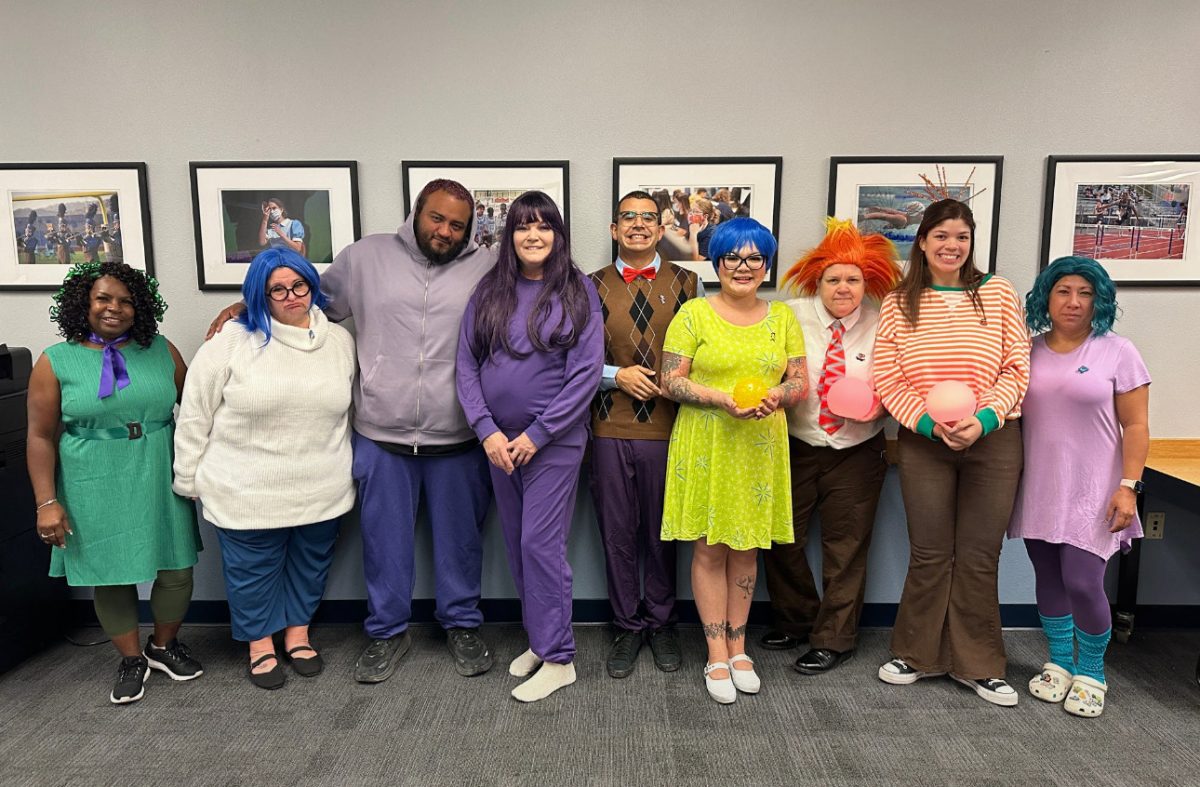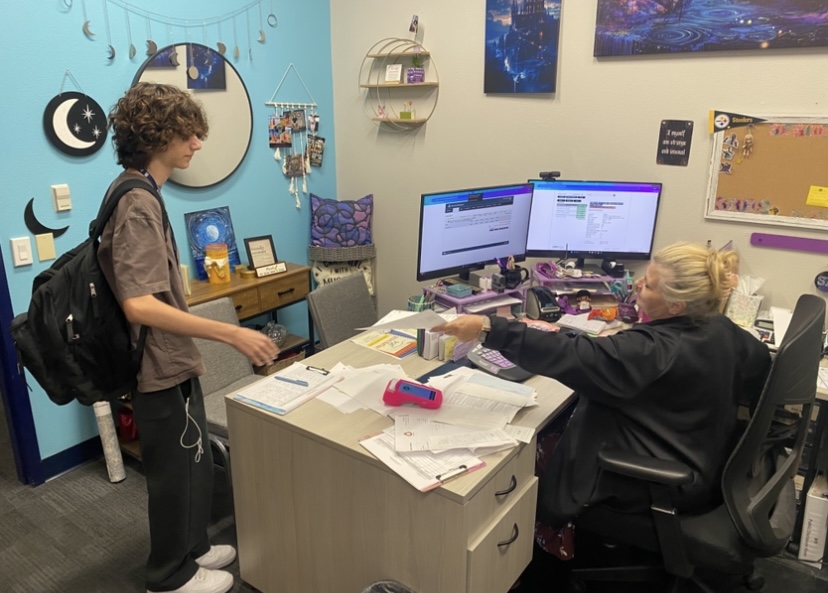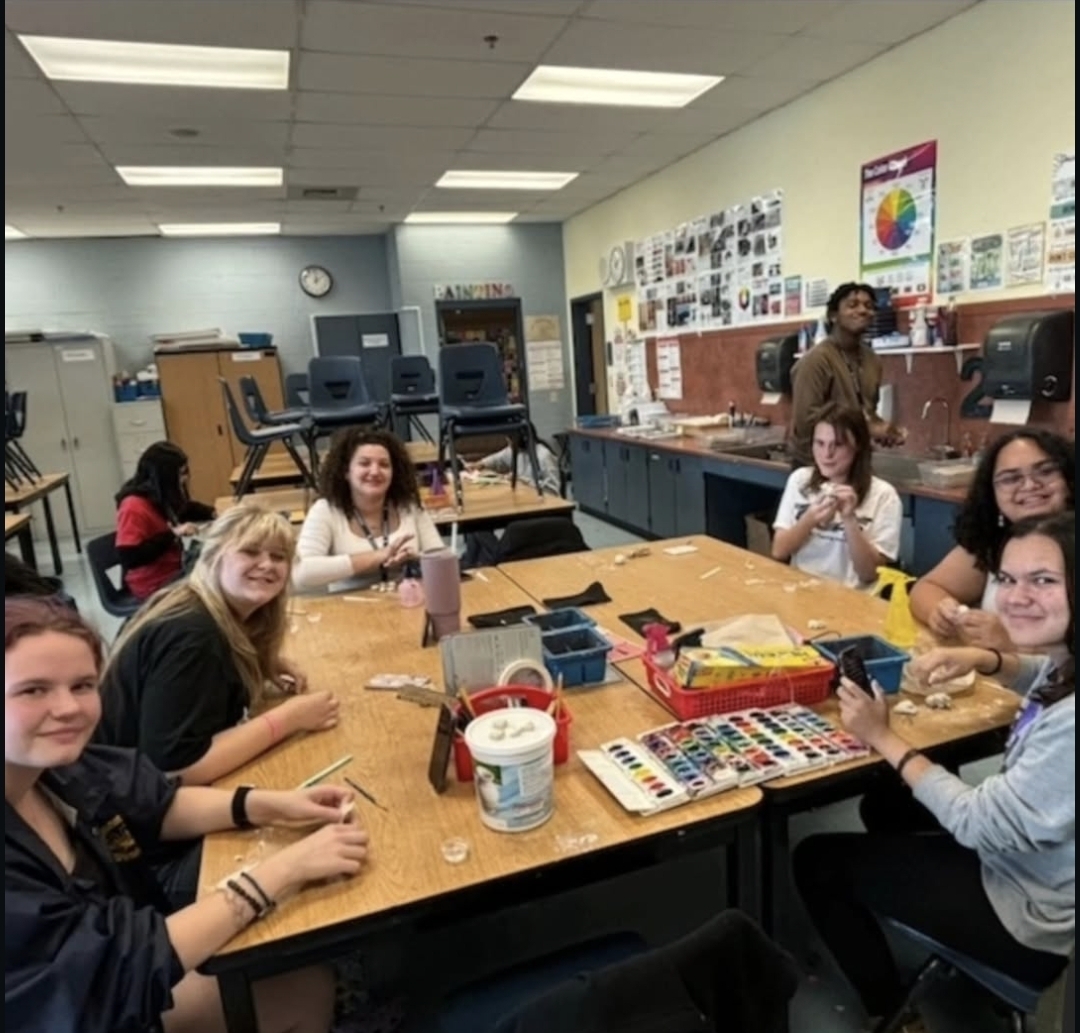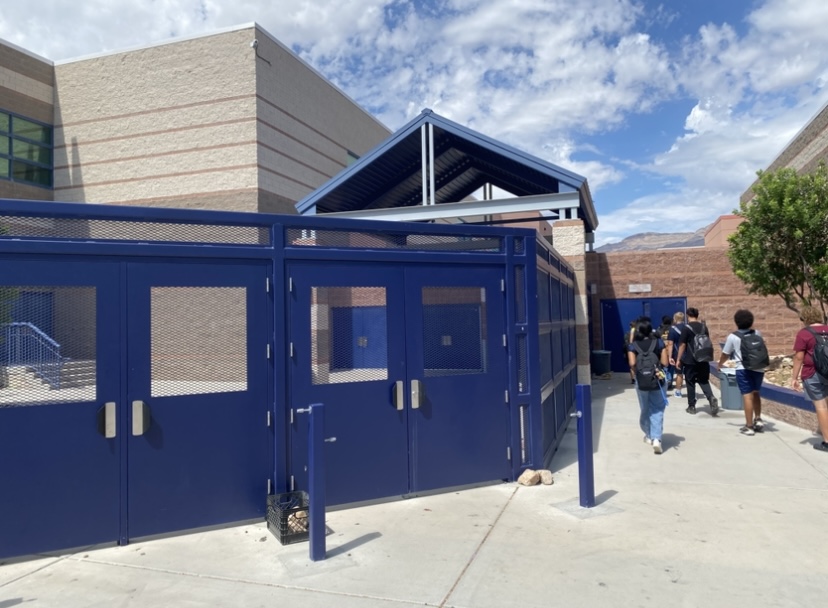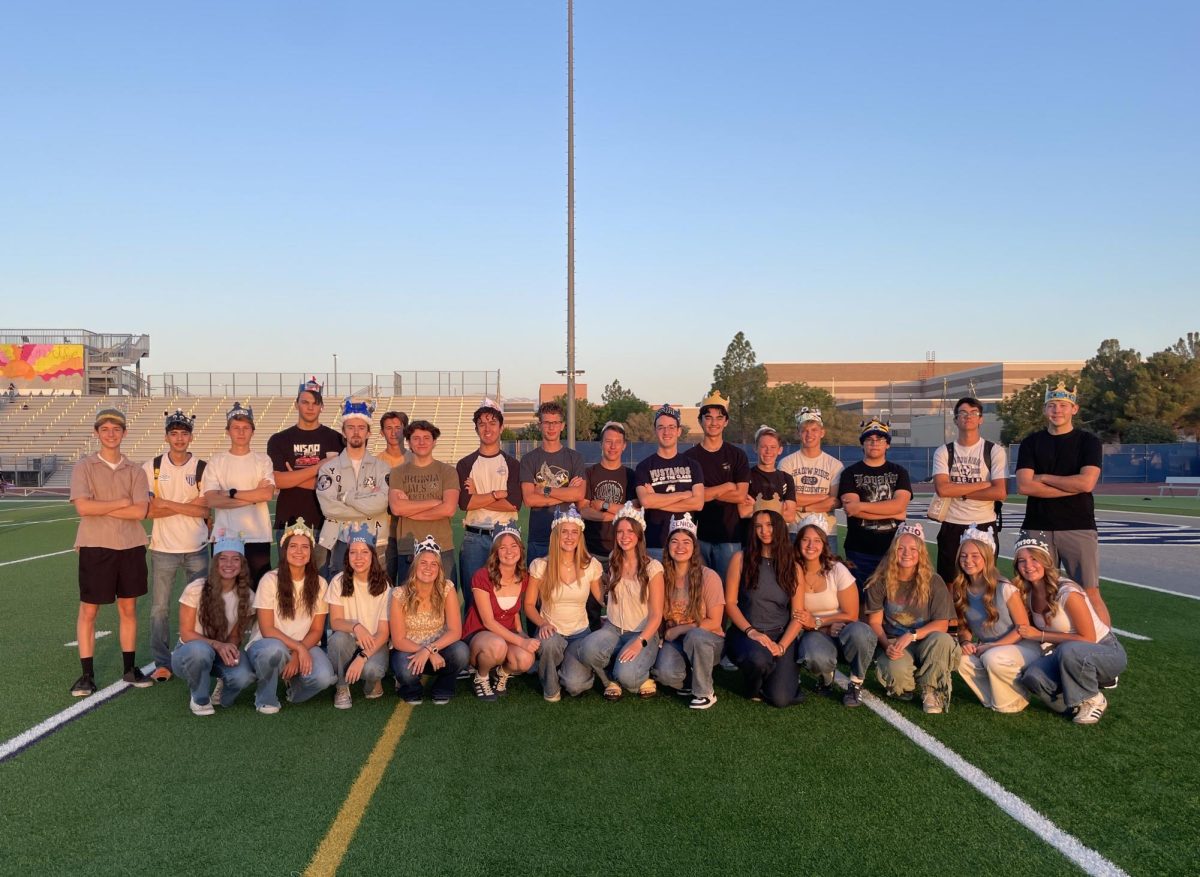Behind the bustling hallways and ringing bells of Shadow Ridge lies a lesser-seen hub of organization and activity: the school office. Secretaries juggling schedules, administrators addressing crises, from coordinating substitute teachers to calming anxious parents, the office staff navigates the chaos with remarkable efficiency.
To truly understand the importance of the high school office, it’s essential to look at the people, processes, and challenges that define its daily operations.
There is no typical day in the office. Things come up that administrators have to put into their schedules or even completely put in the front of their tasks. Fortunately, the office has systems and has people who have specific jobs to focus on to make the office run smoothly.
Principal Traci Kannon states, “I prioritize being around kids, getting into the classrooms, doing lunch duty, etc.”
Other administrative tasks that take more time or that include other administrators will get pushed to the end of the day. Kannon includes, “The work doesn’t get less, I just have to work more.”
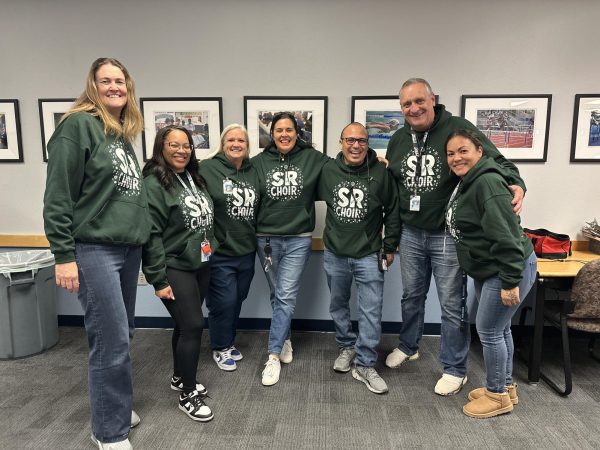
The office is broken down into so many categories, and they have specific people for specific events to make sure everything is looked over and is taken care of properly. Shadow Ridge is a school that has so many activities for students, and the office’s job is to make sure they are enjoyable for students and the school community.
Shadow Ridge’s offices operate smoothly, with employees generally understanding their roles knowing how to complete their tasks. A key strength of the team is their willingness to help one another, others step in to support, even if the task falls outside their usual responsibilities. “I value that as well, the teamwork,” Kannon adds.
Working at Shadow Ridge is highly rewarding, particularly because of the opportunity to work with students and witness their growth.
Assistant Principal Missy Shipp says, “Observing their development from when they enter as freshmen to when they graduate as seniors is especially fulfilling…seeing the arc of their progress over those years is truly remarkable.”
Building relationships with students and parents requires visibility and accessibility. To foster these connections, the facility makes an effort to be present in the mornings, during the lunches, and remain unoccupied. They often leave their phones in the office, recognizing that carrying it can send a nonverbal message of unapproachability, discouraging interaction.


